Yin and Yang ethnic business. In Russia and in the world there are more and more migrant entrepreneurs
Private business attracts migrants
Migration processes led to the emergence and expansion of ethnic entrepreneurship. In modern Russia, the ethnic business has gradually filled the entire spheres of the Russian economy, affecting certain changes in the socio-economic life of Russian society. The increase in the number of international migrants in the territory of the Russian state also contributes to the further growth of ethnic business, which gradually dominates entire spheres of economic activity and displaces indigenous people from them, or is the last to serious competition. Migrants are increasingly manifesting themselves not only as hired labor at construction sites, but also as entrepreneurs, and very successful ones, creating effective firms and enterprises in a short time. Ethnic business is very different from the business of indigenous people. It operates according to its own rules of organizing and running a business, using the resources of the ethnic diasporas as the main base and guarantor of the effectiveness of its activities. As a matter of fact, migrants have no other opportunities for self-realization, except for hired labor or creating their own business. Of course, those of them who have ambitions, some financial means and some intellectual and educational potential, prefer to open their own business in a foreign land. This is explained by the fact that other channels for migrants in most countries of the world are blocked.
Due to the lack of citizenship, poor knowledge of the state language, possible problems with the compliance of diplomas with the criteria in the host country, they cannot be accepted for public service, law enforcement agencies or the education and health care system. Therefore, the majority of migrants are settled in the field of ethnic entrepreneurship, and both as owners - entrepreneurs, and as employees. In the host country, migrants are beginning to use their ethnicity as their main social resource, because it helps them solve a number of important problems — and consolidate to protect them from possible infringements by nationalists, their home appliance, and work organization. Of course, ethnicity also plays a very important role in creating and developing your own business. Being in the closed environment of the diaspora, migrants artificially protect themselves from the surrounding population, preferring to communicate in their own environment and among their fellow tribesmen to engage in business activities. This gives them the effect of security, the preservation of their “little world”, the “island of the motherland” in a large space alien to the linguistic, ethnic and cultural relation of the host country.
Thanks to the ethnic business, migrants have the opportunity to adapt relatively quickly and painlessly to the living conditions in a foreign country, to increase their financial position and status in society. The migrants who claim only the role of employees have obvious advantages from the existence of ethnic businesses. After all, in the structure created by the tribesmen, they are more likely to find work, because countrymen to a lesser extent will look at the level of language proficiency, the presence of a diploma of education of the appropriate sample and even for registration and all sorts of permits and licenses. Moreover, many indigenous employers prefer not to hire migrants, so as not to face the many problems caused by their status. There are cases of failures in employment, motivated only by the nationality of the migrant - the private employer is free to decide for himself whether or not to hire a specific applicant, and if the latter does not correspond to any of his ideas about the “ideal worker”, then it is easy for him refuses. As for migrants, here such refusals may look quite reasonable, since language barriers, differences in the level of education and qualifications, professional experience, ability to communicate with others, rules of behavior, can create really insurmountable obstacles to the employment of migrants. In particular, if we are talking about those areas of activity where knowledge of the language, availability of education, and professional experience are necessary conditions for full-fledged work activities. It is cultural and educational barriers that do not allow to claim more prestigious types of work, leave for migrants such areas as trade, public catering, consumer services, low-skilled construction, agricultural labor, work on cleaning the territories and garbage collection.
"Ethnic niches" of the Russian and world economy
On the territory of modern Russia, ethnic business is most active in several sectors of the economy. Well-known economist and sociologist V.V. Radaev refers to them the production and trade in goods that have a distribution within the diasporas themselves (religious and national literature, food, national clothing, religious objects); trade in exotic goods for the local population (for example, Koreans selling salads in the markets of Russian cities); consumer services (for example, in Moscow until the second half of the twentieth century. Assyrians were the shoe cleaners and shoemakers); market trade and heavy non-prestigious activities (Radaev VV. Ethnic entrepreneurship: world experience and Russia // Political Studies. M., 1993. No. XXUMX). According to sociologists, in the Russian economy there has even been a division into separate segments, in which certain ethnic groups predominate. In particular, in Moscow, the Armenian diaspora is active in the manufacture and repair of shoes, trade in footwear, jewelry and jewelry. The Azerbaijani diaspora is most active in the wholesale and retail trade in vegetables and fruits, as well as in the organization of catering establishments, primarily cafes and barbeque. The Georgian diaspora is also active in the catering and automobile business. The Diaspora of the Mountain Jews is concentrated in the real estate business, it is the Mountain Jews who own significant trade areas in the capital. The Chinese diaspora in Moscow focuses on trade in clothing markets, catering, traditional Chinese medical and beauty centers, massage parlors. Representatives of the Vietnamese diaspora, which appeared in the USSR back in the 5-s. to work under the contract at the enterprises of light industry, currently focused on trading in clothing markets. The Afghan diaspora is also active in market trade, with former Afghan functionaries of the People’s Democratic Party of Afghanistan, military personnel, intelligence officers and police, as well as their children and relatives who emigrated to the Russian Federation among the Afghans of the capital. That is, we see that each diaspora has its own field of activity, which is largely dependent on the national specifics of business, a tendency to certain types of activity, but also formed by objective socio-economic conditions.
The concentration of people from the republics of the Transcaucasus, primarily Armenia and Azerbaijan, in the commercial sphere is explained, firstly, by the presence of rich traditions of private business activities of the Transcaucasian peoples. Migrants from the republics of the Transcaucasus have extensive trading experience, are economically and socially active, and sociable, that is, they have the set of qualities and skills that allow them to succeed in business. Secondly, among immigrants from the republics of the Transcaucasus, a significant part is made up of people with secondary specialized and higher education who lived in large cities (especially the diasporas of Baku Armenians and “erazov” - Yerevan Azerbaijanis). In contrast to the Transcaucasian migrants, immigrants from the republics of Central Asia initially have much weaker starting positions. First, they are deprived of a system of ethnic ties that has been created for decades, as they entered the Russian communication space much later than Armenians, Azerbaijanis or Georgians. Secondly, the level of education and knowledge of the Russian language among the Central Asian migrants is much lower, and young migrants may not speak Russian at all. Thirdly, the majority of Central Asian migrants are represented by people from rural areas who do not have any specialties and do not have extensive experience in communication in an urban environment. Therefore, migrants from the Central Asian republics predominantly occupy the niches of hired workers in construction, housing and utilities, and do not demonstrate a desire to improve their social status status. In addition, many migrants from Central Asia view their stay in Russia as a temporary, forced measure, which also does not contribute to the development of a desire for integration into Russian society.
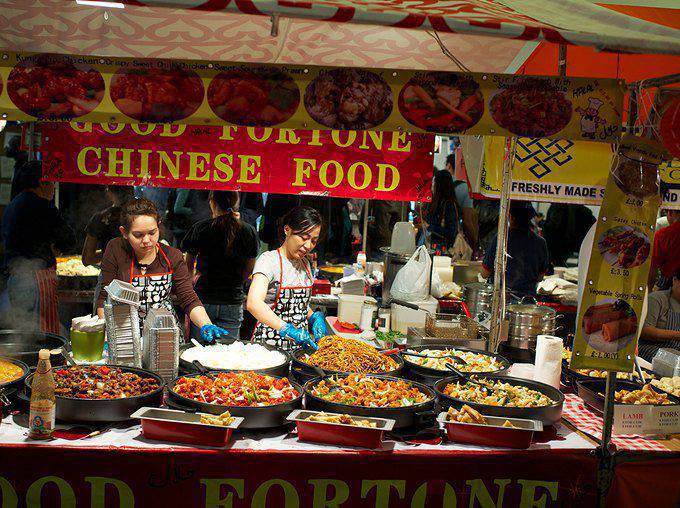
Ethnic business is specialized practically in all countries of the world, including the USA and countries of Western Europe. But in Russia, ethnic entrepreneurship acquires special forms, moreover, according to some scholars, it can be said that businessmen from among the national diasporas monopolize entire sectors of the economy. Moreover, they are not only integrated into the existing economic relations, but also form their own ways of doing business on the territory of other ethnic groups. In the Russian Federation, migrants settle not only cities, but also rural areas, where they actively manifest themselves in the field of agriculture and, accordingly, in agricultural trade. Thus, in the south of Russia, enclaves of migrants living in rural areas were formed. In particular, large groups of Kurds and Yezidis reside in the Krasnodar Territory, migrating from the South Caucasus and Central Asia and now actively participating in the regional economy, including agricultural production and trade in agricultural products. In the Rostov region in the eastern regions, a significant role in agriculture is played by Meskhetian Turks engaged in the cultivation of vegetables and cattle breeding, and also “internal migrants” - migrants from Dagestan and Chechnya, also engaged in agriculture in the steppe regions in the south-east of the region. The Saratov region is inhabited by a relatively small, but effectively Dungan diaspora, a Chinese Muslim, that manifests itself in agriculture.
"Minority intermediaries"
History testifies that ethnic business existed almost always and in all regions of the world. The world knows several key ethnic groups that have taken on the functions of a “trade and craft nation”. For obvious reasons, in each region the “trade-craft nation” had its own. For example, in Europe and the Middle East, the functions of a “trade-craft nation” were more often assumed by Jews, in the Caucasus and the Middle East — Armenians, in the Mediterranean region — Greeks, in Southeast Asia — the Chinese, in East Africa — Indians and in West Africa there are Syrians and Lebanese. The sociologist Edna Bonacic even introduced into scientific use the concept of “minority intermediaries,” that is, ethnic groups of non-indigenous origin, which play a key role in trade and financial operations. In most countries of the world, “minority intermediaries” play a crucial role in economic life, still controlling entire segments of the economy. Dominating in the economy over representatives of the indigenous population, “minority - mediators” politically prefer to remain in the shadows, so as not to provoke a negative reaction of the majority of the population, and culturally tend to separate themselves from the indigenous population to avoid dissolution and, accordingly, the disappearance of ethnicity as a resource.
Thomas Sowell, an American philosopher and sociologist, addressed the issue of “minority mediators”, highlighting some common features in their activities. So, according to Sowell, on the one hand, there is nothing in common between the various groups of “minority intermediaries”. What can bring the Chinese Malaysia and European Jews, Kenyan Indians and Senegalese Lebanese? After all, they have no ethnic, linguistic, cultural or confessional kinship. Sowell answers this question - the general social position that the listed and some other groups occupy in their countries of residence. “Intermediaries” perform vital functions, but they also act as a lightning rod for the negative reaction of the national majority. The classic example of a “minority mediator” was seen in the Jewish diaspora: Ashkenazi, Sephardic, Mountain and Bukhara Jews, other groups of Jews historically have much in common in terms of social and economic status. The Chinese are called huaqiao "Jews of Southeast Asia", and the Parsis are called "Jews of India", the Lebanese and Syrian Arabs are called "Jews of West Africa", and the Indians are "Jews of East Africa."
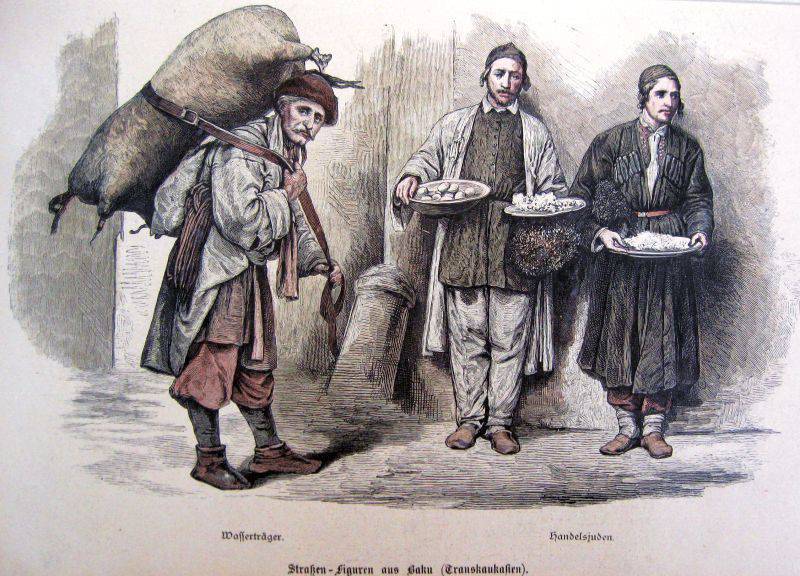
As a rule, despite the obvious successes and benefits of the “trade-craft nations” for national economies, the indigenous population belonged to ethnic minorities that display entrepreneurial activity, with mistrust, hostility, and even hatred. At the same time, the indigenous population also could not do without their trade and mediation services. For the ruling classes, the very existence of trade nations served an important function of “steam descent”. Any dissatisfaction with the socio-economic situation in the country with the necessary informational coverage is always possible to direct not against the authorities, but against small groups of “strangers”, which cause the envy of the rest of the population for their economic successes. For example, in many countries of Europe over the centuries there were Jewish pogroms, which consisted in the destruction and plunder of retail outlets, taverns, enterprises owned by Jewish entrepreneurs. In the end, these pogrom sentiments were actively used by the German Nazis, as well as their like-minded people in other countries of Eastern and Central Europe. In Southeast Asia, where the Chinese nation traditionally occupies a niche of the trading nation, pogroms of Chinese outlets and workshops also occur periodically. It is indicative that the local population itself cannot exist without Chinese trade and Chinese artisans, but sees them as speculators who inflate prices, and, accordingly, during political and economic turmoil, tears their anger on “foreigners”. So, in 1998, mass pogroms of the Chinese population shook Indonesia. They led hundreds of thousands of Huaqiao to give up their business and emigrated to neighboring Singapore and Malaysia. The funds of the Chinese diaspora were transferred to foreign banks, which led to the export of at least 80 billion US dollars from the country. For the Indonesian economy, this has become a serious loss that Indonesians themselves have inflicted on it.
The indigenous population perceives ethnic entrepreneurs - migrants as strangers, exploiting and deceiving local residents. In addition, the media often assist in spreading rumors about the evil minds of migrant entrepreneurs. As a rule, catering and trade points are accused of poor sanitation, construction firms are accused of unfair performance of work and the use of illegal migrant labor. This fueled nationalist sentiment, but the victims are not the undercrowded migrants who constitute the backbone of street crime and who, as a matter of fact, should be deported from the country, but quite successful people who benefit, if not the country's economy as a whole, then items accurately, facilitating their existence provided by household services.
In modern Russia, the majority of ethnic entrepreneurs are engaged in market trade and are represented by migrants and their descendants, primarily citizens and former citizens of the South Caucasian republics (Armenia, Azerbaijan, and to a lesser extent Georgia), Central Asia (Uzbekistan, Tajikistan), China, Vietnam, Korea, Afghanistan, Iran. Ethnic entrepreneurs often have well-established ties with their homeland, which facilitates trading activity and the recruitment of hired workers from among the tribesmen. Most of the firms and enterprises created by migrants rely on kinship and compatriot ties, which become the basis of business and management organization. The Russian sociologist O. Vendin cites the point of view, according to which, as migration processes grow in the modern world, the national diaspora will sooner or later become the second, after the nation state, form of national organization. Whatever it was, but even now diasporas play an important role in the Russian economy, and the state does not make any serious efforts to limit the influence of diasporas on certain segments of the economy. On the other hand, the presence of the diaspora as a form of organization of national minorities allows at least somehow interacting with migrants to influence the migrant environment, which is especially important in the context of preventing extremism, fighting crime, resolving conflict situations that arise between migrants and local residents .
The significance of ethnobusiness for diasporas
For national diasporas, ethnic business plays a very important role for a number of reasons. Firstly, the presence of their own business among members of the diaspora increases its social status, position in society, creates an economic base, the resources of which can be used to obtain social capital. Secondly, a significant part of the funds received by ethnic entrepreneurs is spent on the needs of the diasporas themselves. It is through the donations of ethnic businessmen that numerous national cultural organizations, additional schools, and religious institutions exist. Part of the money received from ethnic businesses is spent in the interests of establishing links with migration services, police, courts, prosecutors, and administrations. Finally, ethnic business plays a key role in the employment of incoming tribesmen. For example, many migrants from the countries of Central Asia and the Caucasus, arriving in the Russian Federation, are hired by firms and enterprises created by their compatriots who settled in Russia earlier. With the help of ethnic business, the consolidation of compatriots is also carried out - for example, markets, restaurants, cafes, barbecue houses serve as a gathering place for fellow countrymen, perform a kind of integration function.
Peter Stoker, who studies the behavior of migrants from Turkey who settled in Germany, draws attention to the active role that the Turks play in the small business of Germany. According to Stoker, the presence of family businesses of Turkish small businessmen makes it possible to employ younger relatives who would otherwise join the army of the unemployed and urban marginalization (Stoker P. Foreign Work: A Review of International Labor Migration. M., 1995.). Gradually, the Turks “crushed” most of the catering outlets and a large part of the market trade in fruits and vegetables, occupying the social niche occupied by Azerbaijanis and other people from Transcaucasia in German society. In 2011, German Chancellor A. Merkel reported that at least 80 thousands of Turkish enterprises operate in Germany. 80% of the staff at these enterprises are ethnic Turks. The main part of the enterprises created by persons of Turkish nationality is concentrated in the sphere of public catering and light industry. At the same time, the majority of enterprises are located in large cities, where most of the migrants from Turkey are concentrated. Many enterprises are family-owned; they are mostly employed by members of one large family, sometimes with the help of acquaintances or third-party employees. In any case, the Turks today play an important role in the economy of Germany, especially in small and medium businesses. It is not known whether Germany would be able to adequately fulfill its needs in catering establishments or market trade in fruits and vegetables, if you did not live in the country of a significant Turkish diaspora. But on the other hand, the increase in the number of ethnic businessmen of Turkish origin, accompanied by an increase in the material well-being of the Turkish diaspora, entails the emergence of political ambitions. Today, no one will be surprised by a Turk - a member of the Bundestag, or even the mayor of a German city. Moreover, in some cities, where the Turkish and other “visiting” population is about half of the inhabitants, migrants begin to determine the cultural appearance of the cities themselves. The speech of Nargess Eskandari - Grünberg, a member of the Green Party of Germany, is scandalous (she’s not of Turkish origin but of Iranian origin), in which the eastern lady said without hesitation: “Now 40% of foreigners live in Frankfurt, and who don’t like it, please , can leave ”(Kozlovsky V. The Turkish share of the German miracle // http://www.cogita.ru/).
The appearance of political ambitions among Turks, Algerians, Iranians and other migrants from Asia and Africa living in Europe is largely due to the functioning and enrichment of the ethnic business. There are no serious political ambitions for migrant workers who are sweeping the streets or carrying heavy loads at a construction site. However, when 30-50-70% of small businesses in a particular city or region are concentrated in the hands of the diaspora, here it receives quite tangible economic levers for the implementation of their interests. Gradually, diasporas get the opportunity to direct the funds received from ethnic enterprises not only to support national cultural organizations, but also to lobby their interests in legislative and executive authorities. There are deputies from the migrant environment, not to mention the lower level - employees of local administrations, law enforcement agencies, lawyers of various profiles, journalists, etc. Ethnic business, therefore, is becoming the most important instrument of influence of the national diaspora on state policy. On the other hand, integrating into the political life of the state, the diasporas within themselves further strengthen closeness, internal discipline, preserve clan relations that have become obsolete even in their homeland. These processes are a defense mechanism aimed at ensuring survival in an alien environment, but at the same time, diaspora leaders are well aware that their political future remains cloudless only insofar as migrants do not integrate into the host society. Otherwise, the need will disappear in the diasporas themselves, and their leaders will turn only into the organizers of ethnically oriented leisure, but not into serious public and political figures.
The dark side of ethnic business
Thus, it is possible to highlight the negative effects of the expansion of ethnic business. Firstly, the ethnic business contributes to the preservation of the internal isolation of migrant diasporas, since in the latter a special microenvironment is created that allows migrants to live comfortably in a foreign land, without thinking about integration into their host society. A significant part of migrants communicate exclusively in their own environment, opposes inter-ethnic marriages, the adoption of the culture of the host society. This becomes a frequent cause of interethnic tension and conflicts arising from it on interethnic grounds. Many immigrants from Asia and Africa who live in Europe do not consider it necessary to study the languages of the host countries in due amount, as they count on assistance from fellow countrymen who have already gained significant positions in business and even in public service - in the same law enforcement agencies. Those groups of migrants who live in a compact, closed groups are least affected by integration processes. Moreover, the latter phenomenon takes place in megacities, where “ethnic ghettos” are formed in certain areas of cities, and in rural areas, where entire villages can be inhabited by migrant diasporas, which are actually islands of another culture within the host society. On the one hand, there is nothing wrong with the desire of people to dwell in a comfortable environment for them, surrounded by countrymen and fellow tribesmen, with whom there are no language barriers and cultural contradictions. But the other side of this problem is the growing fragmentation of society, that is, its division along ethnic lines, with the formation of virtually uncontrollable groups of people living by their own laws, in fact, as a “state within a state”.
Compact migrant settlements can become not only colorful objects that attract lovers of national cuisines to their restaurants and cafes. More often, these areas become centers of shadow business, street crime, and even political extremism and religious fundamentalism. Thus, the quarters of Paris and Berlin, occupied by migrants, Marseille and Frankfurt become centers of mass unrest in conflict situations, which must be suppressed with the involvement of significant police forces and even army units. It is known that some structures of ethnic business, created by people from Middle Eastern countries, may be involved in the financing of radical and religious-fundamentalist organizations, in recruiting migrant youth to participate in extremist activities. So, it is known that significant flows of volunteers to participate in hostilities on the side of the "Islamic state" are sent to Syria and Iraq from Europe. Of course, in these flows there is a certain proportion of Europeans who converted to Islam, but the bulk of them are, of course, people from diasporas.
Law enforcement agencies of the Russian Federation repeatedly conduct operations in large wholesale and retail markets in Moscow and other cities of the country, where the bulk of merchants and entrepreneurs are migrants from the countries of Central Asia, Transcaucasia, and the Middle East. As a result of operational activities often find a large number of religious and extremist literature, and sometimes - and weapon. Quite often, underground chapels operate in such markets, and meetings of religious fundamentalists take place. Ethnic business provides for these purposes financial support and an organizational “roof”, moreover, it can lobby the interests of radical circles in law enforcement agencies and power structures.
Another negative side of ethnic business is its increased criminalization. It is widely known that in the Russian Federation it is ethnic business that is most associated with organized criminal groups created on an ethnic basis. Ethnic crime uses business structures created by tribesmen, and even by their own representatives, for money laundering, financing of criminal activities, providing a legal “roof”. In addition, the developed ties of ethnic entrepreneurs with their tribesmen who remain in their homeland allow criminal groups to smuggle both ordinary goods and drugs, alcohol, and weapons. In addition, organized crime controls illegal migration, the issuance of purchased or false documents. Finally, ethnic business structures are most susceptible to racketeering by their fellow tribesmen, and businessmen prefer not to contact law enforcement agencies, since they are focused on the closed life of diasporas and either solve the problems with their own resources or agree to the terms of racketeers.
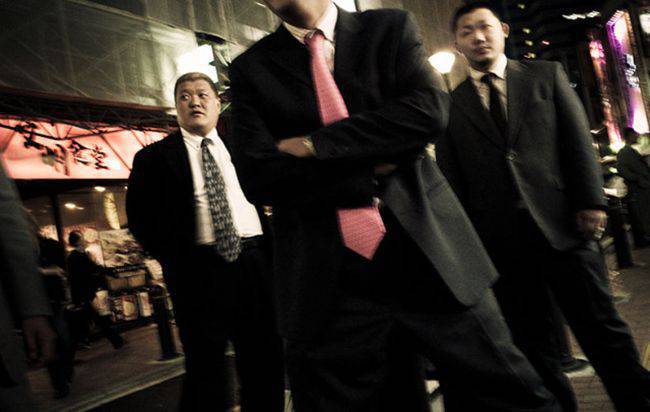
So, it is known that the famous Chinese "triads" act almost exclusively among the Chinese emigration, without affecting the daily life of the indigenous population. In the Russian Federation, ethnic criminal groups created by immigrants from the republics of the Transcaucasus are more noticeable to the ordinary man in the street - the representative of the indigenous population, while criminal groups created by immigrants from countries of East and Southeast Asia - China, Korea, Vietnam, and also from African states they prefer not to carry out their activities outside the diasporas and their existence becomes known only after committing any crimes and carrying out operational activities by employees ravoohranitelnyh agencies and special services. However, in the cities of the European part of Russia, the Chinese mafia appears to be exotic, with which, perhaps, representatives of the Chinese diaspora and workers in clothing markets themselves. In the Far East, the situation is somewhat different - there, given the geographical proximity of the PRC, the scale of the activities of organized criminal groups created by Chinese citizens is more extensive. Here, the interests of the Chinese "triads" include the sale of timber and the smuggling of synthetic drugs from China.
The development of ethnic entrepreneurship in the territory of the Russian Federation has both positive and negative content. On the one hand, ethnic business contributes to the overall development of the Russian economy and the improvement of the quality of life of the population, since it fills those areas of activity that would be unlikely, at least on such a scale, to be filled by indigenous people. For example, the restaurant business has never been characteristic of the Russian people, as well as modern Russian city dwellers will not engage in the wholesale and retail trade in vegetables and fruits. Thanks to ethnic business, migrants are integrated into the economic life of the country, they are overgrown with connections in the host society and, accordingly, are less prone to manifestations of destructive behavior. The other side of ethnic business is its heightened propensity for shadowing, the use of shadow schemes for attracting illegal migrants, and the preservation of the internal isolation of national diasporas. The criminalization of ethnic business, as well as possible ties with international extremist and terrorist organizations, directly represent a significant threat to the national security of the Russian state.
Ethnic business in modern Russia should be taken as a reality. The state should not indulge in ethnic entrepreneurs and allow lobbying for their interests through corruption and nepotism, but on the other hand, should not interfere with entrepreneurial activity, even if they come from other states. Naturally, by virtue of its specificity, ethnic business should be under increased control by state structures, primarily to counteract possible violations of the law and attempts to undermine the national security of the Russian state.
- P P 'SЊSЏ RџRѕR "RѕRЅSЃRєRёR№
- http://sector-bets.ru/; http://ruparis.ru/; http://humus.livejournal.com/; http://krasivyimir.ru/
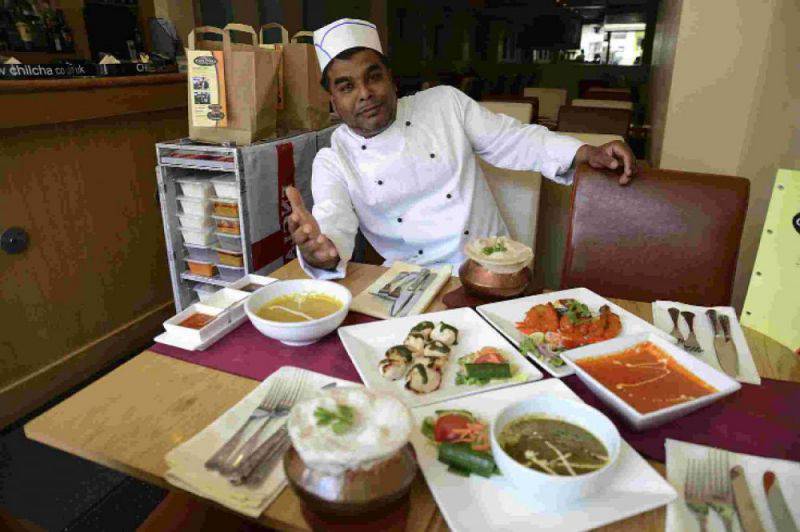
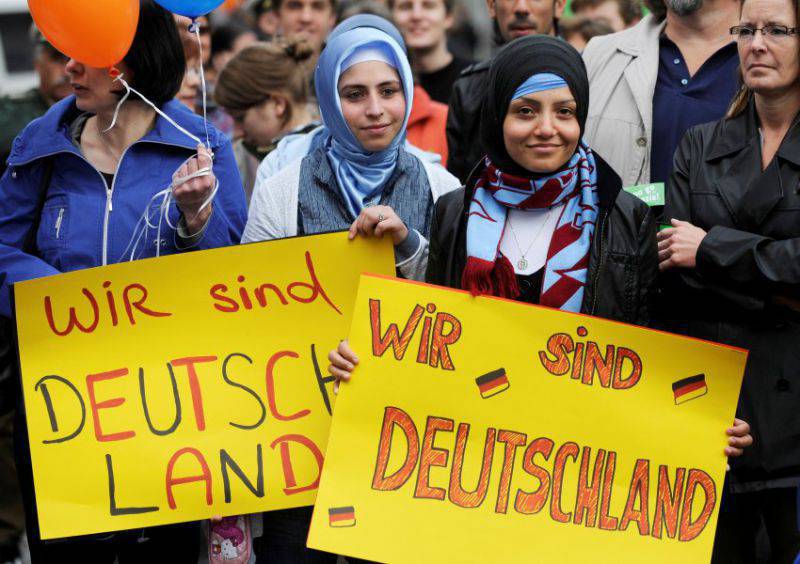
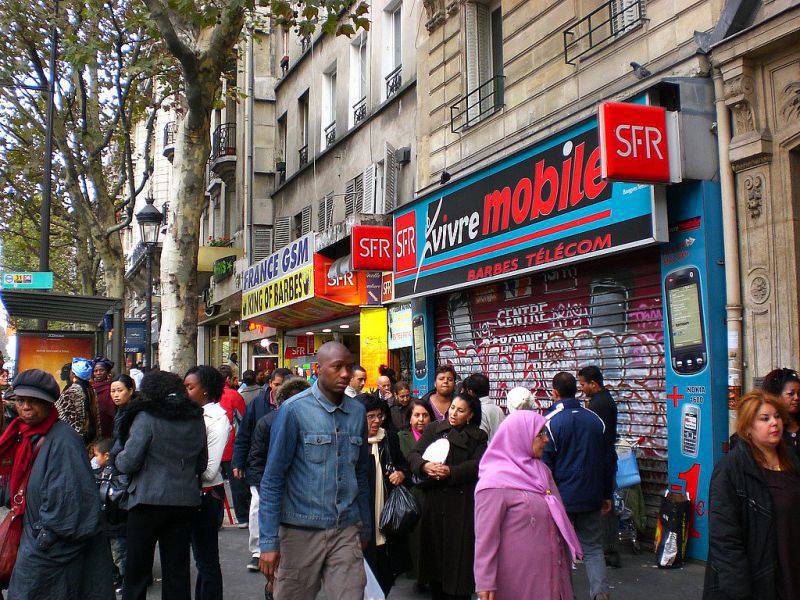
Information